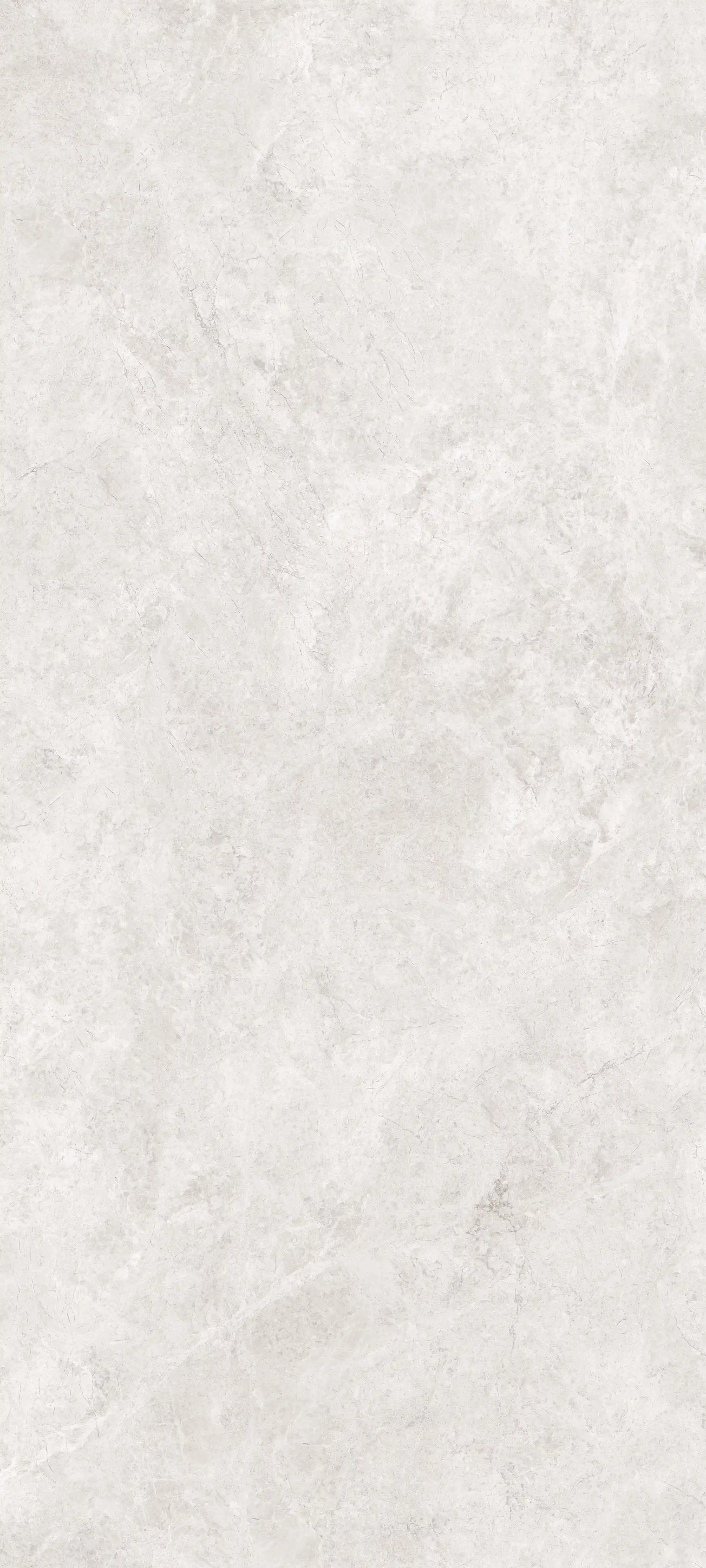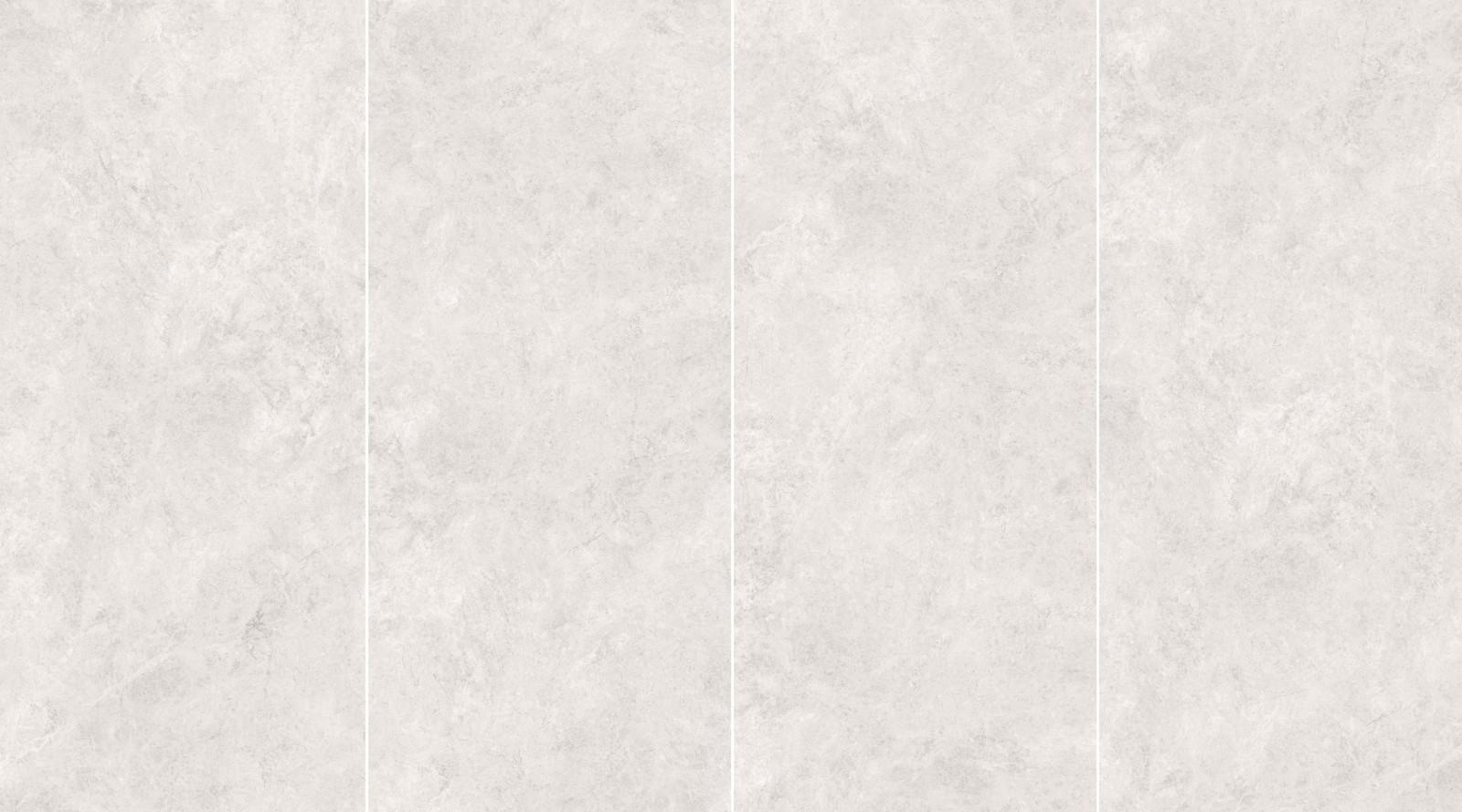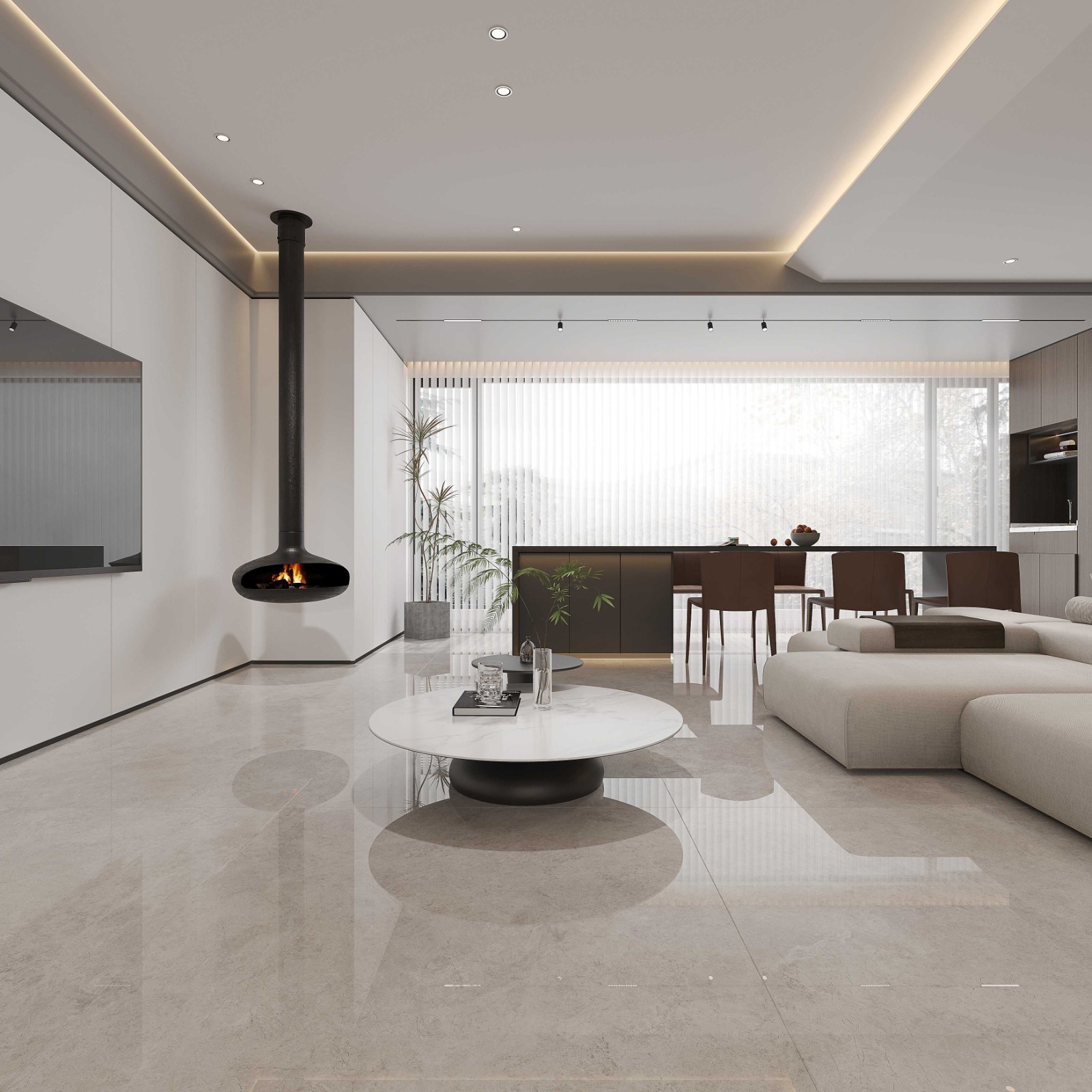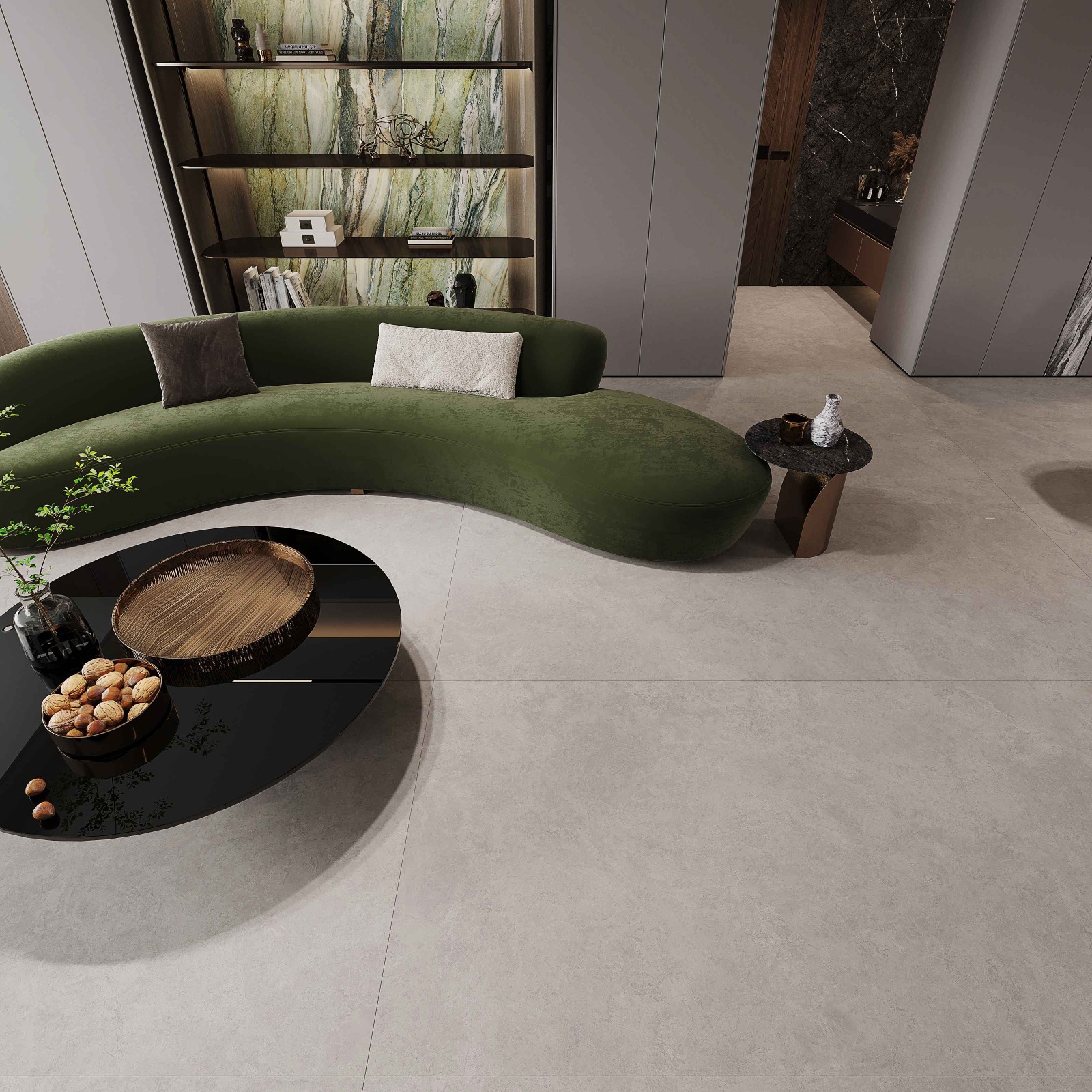In modern kitchens, bathrooms, and home designs, sintered stone countertops are becoming the preferred material for an increasing number of families and designers due to their durability, aesthetic appeal, and low maintenance. However, many consumers are concerned about a core question when purchasing sintered stone countertops: "Is it easily scratched?"
This article will provide a comprehensive analysis of material properties, hardness analysis, daily use, maintenance, and comparisons with other countertop materials to help you gain a scientific and in-depth understanding of the scratch resistance of sintered countertops.

What is a sintered stone countertop?
Sintered stone countertops are a high-density, artificially manufactured stone material. They are formed by pressing and sintering natural mineral powder, ceramic particles, and an inorganic binder at high temperatures to create a hard and dense slab structure. This unique manufacturing process gives sintered countertops the following properties:
• High hardness and wear resistance: The dense and hard surface of sintered stone countertops can withstand most of the pressure and friction encountered in daily kitchen operations.
• Heat Resistance: Sintered stone countertops resist cracking or discoloration at high temperatures, making them more heat-resistant than common artificial and natural stone.
• Corrosion Resistance: Their surface chemical properties are stable, making them resistant to the erosion of most food acids and alkalis.
• Aesthetics: Sintered stone countertops offer rich colors and natural textures, combining both decorative and practical features.
These characteristics make sintered countertops a versatile and visually appealing choice for modern home designs.

What is the hardness of sintered stone countertops?
The most important indicator for determining the scratch resistance of sintered stone countertops is the material's hardness. Sintered countertops typically have a Mohs hardness of 7 or higher, approaching that of natural granite. This means that most common kitchen tools and everyday items are unlikely to cause noticeable scratches.
1. Source of Hardness Analysis
High Internal Particle Hardness: Sintered stone countertops contain natural mineral particles that are much harder than steel knives or cutlery, resulting in a surface with enhanced scratch resistance.
• Dense Structure: The sintering process eliminates excess pores within the countertop, creating a tight structure that is less susceptible to cracks or dents from external forces.
• Surface Treatment: Some sintered countertops undergo a micro-polishing treatment to create a protective film, further enhancing scratch resistance.
Therefore, from a scientific perspective, sintered stone countertops are relatively less likely to be scratched by everyday kitchen work, but they are not completely scratch-proof.
Misconceptions About Sintered Countertops
Many consumers hold the following misconceptions:
Myth 1: Sintered stone countertops are as "indestructible" as glass
Despite their high hardness, sintered stone countertops can still be scratched by sharp objects or prolonged friction.
Myth 2: Scratches are prevented as long as you don't cut vegetables
Grit, iron utensils, or heavy objects used during cooking can also cause minor scratches.
Common Scratches
1. Direct Contact with Sharp Objects
Direct contact with the countertop surface by sharp objects such as metal knives, scissors, wire brushes, and screwdrivers can leave scratches.
2. Friction from Hard Particles
Grit, nut shells, stones, and other objects in food can also cause minor scratches when they rub against the countertop.
3. High-Voltage Impact
Placing heavy objects on the countertop for extended periods, knocking against it, or directly hitting it with hard objects can damage the surface of a sintered stone countertop.
It's important to note that these scratches are mostly minor surface damage and do not affect the overall structural safety or durability of the sintered countertop.
How can you properly use a sintered countertop to reduce scratches?
To protect the beauty and durability of your sintered countertop, you can take the following measures during daily use:
1. Use a cutting board and utensils for protection
Even though the sintered stone countertop is very hard, it's still recommended to use a cutting board when cutting. A cutting board can:
• Prevent scratches from direct contact between knives and the countertop.
• Extend the life of your knives.
• Prevent scratches from hard particles generated during cutting.
2. Avoid placing sharp or heavy objects directly on the countertop
Place heavy utensils and sharp objects on a soft mat, tray, or cloth mat to reduce the risk of friction and scratches.
3. Promptly remove particles and impurities
Hard particles such as sand and food debris generated during cooking should be removed promptly. Prolonged friction between tiny particles and the countertop surface can also cause fine scratches.
4. Regular maintenance and surface care
While sintered stone countertops do not require frequent waxing, they can be cleaned daily with a professional cleaner and a soft cloth. Keeping the surface dry and smooth helps maintain its scratch resistance.

Scratch Resistance Comparison of Sintered Countertops and Other Countertop Materials
To better understand the scratch risk of sintered stone countertops, we can compare it with common countertop materials:
Countertop Types | Hardness (Mohs) | Scratch Resistance | Lifespan | Features |
Sintered Stone Countertops | 7-8 | High | Long | High hardness, heat resistance, corrosion resistance, and easy cleaning |
Quartz Countertops | 6-7 | High | Long | Resists stains and wear, but is sensitive to thermal shock |
Granite Countertops | 6-7 | High | Long | Natural and beautiful, but high porosity requires protection against penetration |
Structural Stone Countertops | 5-6 | Medium | Medium | Easy to process, but relatively low hardness and prone to scratching |
| Marble Countertops | 3-5 | Low | Medium | Beautiful but soft and easily scratched, requiring careful maintenance |
As shown in the table, sintered stone countertops lead the way in hardness and scratch resistance among all common countertop materials. Under normal use, their scratch risk is much lower than that of marble and artificial stone countertops.
Repairing Scratches on Sintered Countertops
Even with protective measures, sintered countertops may still develop minor scratches. Depending on the depth of the scratch, the following methods can be used:
1. Minor Surface Scratches
Use a professional sintered stone cleaning paste or micro-granular polishing agent and gently buff in the direction of the scratch to restore the countertop's gloss.
2. Significant Scratches
Deeper scratches can be treated with fine sandpaper or a professional polishing machine, followed by buffing with a polishing paste. Be gentle to avoid damaging the surface.
3. Professional Repair
For larger scratches or severe damage, consult a professional manufacturer or repairer to ensure the countertop's aesthetics and longevity.

Daily Maintenance Precautions for Sintered Countertops
To ensure the long-term scratch resistance of your sintered countertop, pay attention to the following maintenance details:
• Avoid Acid and Alkali Corrosion: Sintered countertops are highly chemically resistant, but prolonged exposure to strong acids and alkalis may affect the surface's gloss.
• Avoid direct contact with high temperatures: Although heat-resistant, placing hot pots and pans directly on the surface can still cause thermal stress and affect local hardness.
• Keep the surface clean and dry: Use a soft cloth and a neutral detergent, and avoid abrasion with hard objects.
• Regularly inspect the surface: Promptly identifying and addressing minor scratches can extend the appearance and lifespan of the countertop.
The Relationship Between Scratches and Lifespan of Sintered Countertops
From a materials science perspective, even minor scratches on sintered countertops maintain their internal structure. This means:
• Scratches primarily affect appearance and do not affect load-bearing capacity.
• Proper care can extend the lifespan of the countertop, typically lasting over ten years.
• Its high hardness and wear resistance make it a long-lasting solution for kitchens and bathrooms.
Are sintered stone countertops easily scratched?
With a Mohs hardness of 7 or higher, sintered stone countertops are not susceptible to scratches from daily handling. Proper use can reduce the risk of scratches. Using cutting boards and trays, promptly removing particles, and gentle handling are key. Compared to quartz, granite, artificial stone, and marble, sintered stone countertops offer superior overall performance. They are an ideal choice for kitchens, bathrooms, and high-end home spaces.


